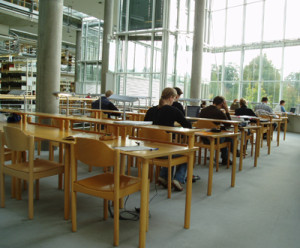
Supporting Student Well-Being with Hypnotherapy
At Oxford Hypnotherapy, Penelope Ling provides tailored hypnotherapy solutions for students facing common challenges such as imposter syndrome, homesickness, exam stress, and issues with organisation. These hurdles often impact students’ confidence and well-being, but with the right guidance and support, hypnotherapy can help students navigate these challenges, build resilience, and thrive during their academic journey.
Boosting Student Confidence with Hypnotherapy
One of the main areas where students struggle is confidence. Whether it’s the daunting transition to university, the pressure of meeting academic expectations, or adapting to a new social environment, many students find their confidence wavering. Hypnotherapy, combined with solution-focused therapy and mindfulness techniques, can help students regain and maintain self-belief.
Penelope Ling focuses on helping students build confidence by addressing negative thought patterns that can often spiral into self-doubt. By guiding students into a state of focused relaxation, hypnotherapy allows them to reframe limiting beliefs, fostering a more positive self-image. This shift empowers students to approach their studies and social interactions with newfound confidence, better equipped to face challenges.
Overcoming Imposter Syndrome
Imposter syndrome is a common issue faced by students, particularly those stepping into competitive academic environments. This psychological pattern makes individuals feel like they don’t deserve their achievements, leading to feelings of inadequacy and the fear of being “found out” as a fraud. Students may believe they aren’t as intelligent or capable as their peers, despite evidence to the contrary.
Using hypnotherapy, Penelope Ling works to unravel these deeply held beliefs. Through guided sessions, students can explore the root causes of their imposter syndrome, challenging distorted perceptions of their abilities. Hypnotherapy can also instil a more balanced view of success, helping students recognise their achievements as a result of their own effort and skills. This reframing reduces anxiety and allows students to fully embrace their potential.
Managing Homesickness and Emotional Resilience
Leaving home for the first time and adjusting to university life can be an emotional rollercoaster for students. Homesickness is a common struggle, with many students feeling isolated and longing for the familiarity of home. These feelings can sometimes escalate into anxiety or depression, impacting both academic performance and social engagement.
Through hypnotherapy, students can develop emotional resilience and coping strategies for homesickness. By entering a deeply relaxed state during therapy, students can tap into positive mental imagery and calming techniques that help them manage emotions more effectively. Penelope Ling focuses on helping students build emotional strength, enabling them to adapt to their new environment and foster a sense of independence.
Reducing Exam Stress and Anxiety
The pressure to perform academically can lead to intense exam-related stress and anxiety. Students may feel overwhelmed by the sheer volume of information they need to retain, the fear of failure, or the prospect of future career expectations hinging on their results. These stressors can lead to procrastination, poor concentration, and burnout.
Hypnotherapy offers a powerful tool to manage exam stress. By teaching relaxation techniques and calming the mind, hypnotherapy enables students to approach exams with greater focus and clarity. Penelope Ling helps students reduce anxiety by replacing panic-driven thoughts with a sense of control, enhancing their ability to recall information and perform better under pressure. The sessions may also incorporate visualisation techniques, where students mentally rehearse successful exam scenarios, reinforcing positive outcomes.
Enhancing Organisational Skills
Organisation is key to academic success, but many students struggle with time management, procrastination, or balancing competing responsibilities. Hypnotherapy can help students address these issues by instilling a sense of discipline and focus. When students feel overwhelmed by their workload, they can develop habits that lead to disorganisation or avoidance behaviours.
Through hypnotherapy, Penelope Ling helps students create a mental framework for organising tasks effectively. By guiding them through goal-setting techniques and reinforcing positive study habits, hypnotherapy empowers students to take charge of their schedule. As students begin to experience success in their academic routine, their confidence grows, further motivating them to maintain organised habits.
Building Long-Term Resilience and Emotional Well-Being
Beyond tackling immediate challenges, hypnotherapy equips students with tools for long-term emotional resilience. University life often presents a series of new stressors—academic pressure, social dynamics, and financial concerns. Hypnotherapy helps students develop internal coping mechanisms that foster emotional stability, preparing them for future challenges.
Penelope Ling’s sessions focus not only on resolving present issues but also on building sustainable strategies for emotional well-being. This might involve mindfulness techniques, positive affirmations, or guided visualisations that students can use independently in the future. By integrating these practices into their daily lives, students can better navigate the ups and downs of university life with greater ease and confidence.
Conclusion: Hypnotherapy for Student Success
Student life can be challenging, but with the right support, it’s possible to overcome obstacles and thrive. Penelope Ling’s approach to student well-being focuses on addressing the root causes of confidence issues, imposter syndrome, homesickness, exam stress, and disorganisation. Hypnotherapy provides students with the mental tools they need to build resilience, manage stress, and embrace their academic journey with confidence.
Whether you’re a student looking to enhance your well-being or a parent seeking support for your child, hypnotherapy can be a valuable resource. By tapping into the power of the subconscious mind, students can unlock their potential and enjoy a more fulfilling, successful university experience.
References:
- Cramer, H., Lauche, R., Paul, A., et al. (2015). “Hypnosis in Anxiety and Stress: A Systematic Review of Effects and Mechanisms.” International Journal of Clinical and Experimental Hypnosis.
- Roberts, K. C., & Danoff-Burg, S. (2015). “Mindfulness and Health Behaviors: Is Paying Attention Good for You?” Journal of American College Health.
- NHS (2021). “Coping with Exam Stress.”
-
The Imposter Phenomenon in Higher Education: Incidence and Impact
Authors: Anna Weigand Parkman January 2016 The Ohio State University
I work with students online or it’s just an S6 bus ride on a Saturday to Kingston Bagpuize from the bus station.
Also see: Exam Stress
